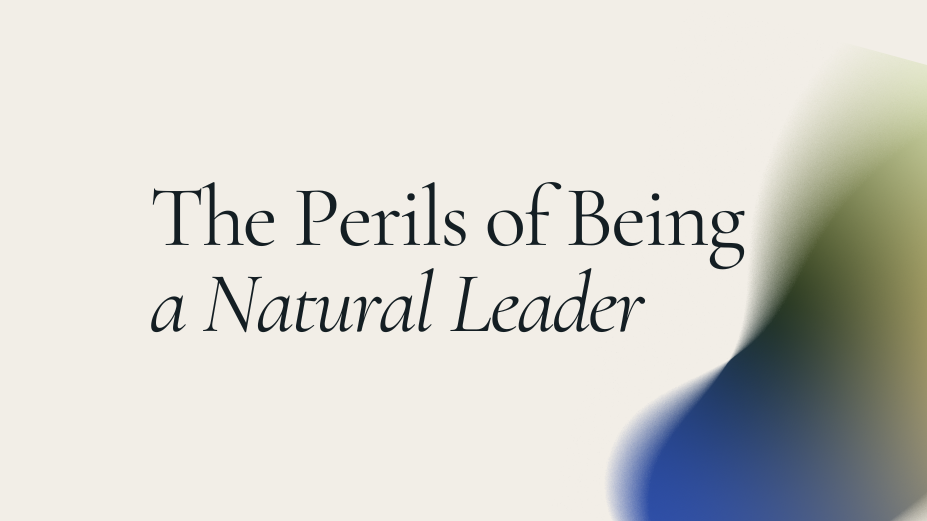Playing Politics: A Skill Worth Rethinking
Why ignoring politics costs you influence

“Choosing not to engage with politics can inadvertently become a form of self-sabotage.”
For many professionals, the word politics carries a negative charge. It evokes manipulation, backroom deals, and game-playing that feels at odds with integrity. No wonder so many people say things like: “I just want to do a good job” or “I’m not interested in playing those games.”
But in most organisations, hard work alone is rarely enough. Politics is part of the system we operate in, after all – not an optional side activity, but the fabric of how influence is built, how visibility is gained, and how recognition flows.
So, what if, instead of dismissing politics as a dirty game, we reframed it as a set of skills rooted in observation, emotional intelligence, and connection? Skills that, when used consciously, can actually strengthen integrity rather than erode it.
Lean into discomfort
The first step is acknowledging that engaging with politics will likely feel uncomfortable. If you are someone who prefers to “just get on with the job,” stepping into spaces where visibility, influence, or advocacy are required can feel unnatural – even contrived. But that discomfort is not a sign you’re doing something wrong; it’s the natural tension of moving beyond your default habits.
Think of it like exercise. The initial strain is what signals that growth is happening. Sitting with the unease – instead of retreating from it – allows you to expand your range of behaviours without betraying your core values.
Observe how others do it
Every organisation has people who seem to move through the political landscape with ease. Some do it skilfully, others clumsily – but either way, they provide a living case study. Watching how they build alliances, position their work, or communicate with senior leaders can reveal a great deal about the unwritten rules of your environment.
By treating observation as research, you can begin to craft your own way of engaging – one that draws on what works without copying what doesn’t fit.
Work with your imposter feelings
As you start putting yourself forward more often – whether speaking up in meetings, pursuing opportunities, or making your contributions more visible – imposter thoughts may surface. These inner voices whisper, “You’re not ready,” or “Others are better suited for this.”
Rather than trying to silence those voices, try acknowledging them. Imposter feelings are simply your brain’s way of trying to protect you from risk. Having a compassionate inner dialogue – recognising the fear but not letting it dictate your choices – can help you act in spite of discomfort. Over time, each small act of visibility builds proof that the fear was misplaced.
Build connections, not networks
Politics is often equated with “networking”, a word that makes many people recoil. But at its core, politics involves relationships. And relationships are built one conversation at a time, not only at formal events or drinks receptions.
Reframing networking as “making connections” can shift the weight of it. That might mean seeking out a mentor, asking for insight from a colleague in another department, or simply keeping in touch with people whose work overlaps with yours. Small, genuine interactions accumulate. Over time, they form a web of trust and visibility that no single networking event could create.
Step out of the shadows
Reliability is a deeply valuable quality. Being known as the “safe pair of hands” or the trusted second-in-command can make you indispensable. But reliability comes with a paradox: the more quietly effective you are, the easier it becomes for others to overlook the scale of your contribution.
If your default is to blend into the background in service of larger priorities, consider moments when stepping forward is just as important as supporting from behind. Remind yourself – and at times, those around you – of what you’ve delivered.
A particular challenge for women
For many women, especially in male-dominated industries, the way politics is traditionally played can feel misaligned. The behaviours rewarded often mirror patterns of influence more familiar to men, which can leave women reluctant to engage at all. The result is that talented women often “lean back,” trusting that hard work will speak for itself.
But in corporate life, perception often shapes reality. Choosing not to engage with politics can inadvertently become a form of self-sabotage. The alternative is to reframe politics on your own terms: as influence, as relationship-building, as advocacy. By doing so, women can participate fully without feeling forced into patterns that betray their authenticity.
Reframing politics as a leadership skill
Politics will always be part of organisational life. The choice we face is whether to resist it, ignore it, or learn to engage with it more intelligently. By leaning into discomfort, observing others, befriending imposter thoughts, building connections, and stepping into visibility, we can transform politics from something murky into something purposeful.
SPEAKERS
“Choosing not to engage with politics can inadvertently become a form of self-sabotage.”
For many professionals, the word politics carries a negative charge. It evokes manipulation, backroom deals, and game-playing that feels at odds with integrity. No wonder so many people say things like: “I just want to do a good job” or “I’m not interested in playing those games.”
But in most organisations, hard work alone is rarely enough. Politics is part of the system we operate in, after all – not an optional side activity, but the fabric of how influence is built, how visibility is gained, and how recognition flows.
So, what if, instead of dismissing politics as a dirty game, we reframed it as a set of skills rooted in observation, emotional intelligence, and connection? Skills that, when used consciously, can actually strengthen integrity rather than erode it.
Lean into discomfort
The first step is acknowledging that engaging with politics will likely feel uncomfortable. If you are someone who prefers to “just get on with the job,” stepping into spaces where visibility, influence, or advocacy are required can feel unnatural – even contrived. But that discomfort is not a sign you’re doing something wrong; it’s the natural tension of moving beyond your default habits.
Think of it like exercise. The initial strain is what signals that growth is happening. Sitting with the unease – instead of retreating from it – allows you to expand your range of behaviours without betraying your core values.
Observe how others do it
Every organisation has people who seem to move through the political landscape with ease. Some do it skilfully, others clumsily – but either way, they provide a living case study. Watching how they build alliances, position their work, or communicate with senior leaders can reveal a great deal about the unwritten rules of your environment.
By treating observation as research, you can begin to craft your own way of engaging – one that draws on what works without copying what doesn’t fit.
Work with your imposter feelings
As you start putting yourself forward more often – whether speaking up in meetings, pursuing opportunities, or making your contributions more visible – imposter thoughts may surface. These inner voices whisper, “You’re not ready,” or “Others are better suited for this.”
Rather than trying to silence those voices, try acknowledging them. Imposter feelings are simply your brain’s way of trying to protect you from risk. Having a compassionate inner dialogue – recognising the fear but not letting it dictate your choices – can help you act in spite of discomfort. Over time, each small act of visibility builds proof that the fear was misplaced.
Build connections, not networks
Politics is often equated with “networking”, a word that makes many people recoil. But at its core, politics involves relationships. And relationships are built one conversation at a time, not only at formal events or drinks receptions.
Reframing networking as “making connections” can shift the weight of it. That might mean seeking out a mentor, asking for insight from a colleague in another department, or simply keeping in touch with people whose work overlaps with yours. Small, genuine interactions accumulate. Over time, they form a web of trust and visibility that no single networking event could create.
Step out of the shadows
Reliability is a deeply valuable quality. Being known as the “safe pair of hands” or the trusted second-in-command can make you indispensable. But reliability comes with a paradox: the more quietly effective you are, the easier it becomes for others to overlook the scale of your contribution.
If your default is to blend into the background in service of larger priorities, consider moments when stepping forward is just as important as supporting from behind. Remind yourself – and at times, those around you – of what you’ve delivered.
A particular challenge for women
For many women, especially in male-dominated industries, the way politics is traditionally played can feel misaligned. The behaviours rewarded often mirror patterns of influence more familiar to men, which can leave women reluctant to engage at all. The result is that talented women often “lean back,” trusting that hard work will speak for itself.
But in corporate life, perception often shapes reality. Choosing not to engage with politics can inadvertently become a form of self-sabotage. The alternative is to reframe politics on your own terms: as influence, as relationship-building, as advocacy. By doing so, women can participate fully without feeling forced into patterns that betray their authenticity.
Reframing politics as a leadership skill
Politics will always be part of organisational life. The choice we face is whether to resist it, ignore it, or learn to engage with it more intelligently. By leaning into discomfort, observing others, befriending imposter thoughts, building connections, and stepping into visibility, we can transform politics from something murky into something purposeful.




